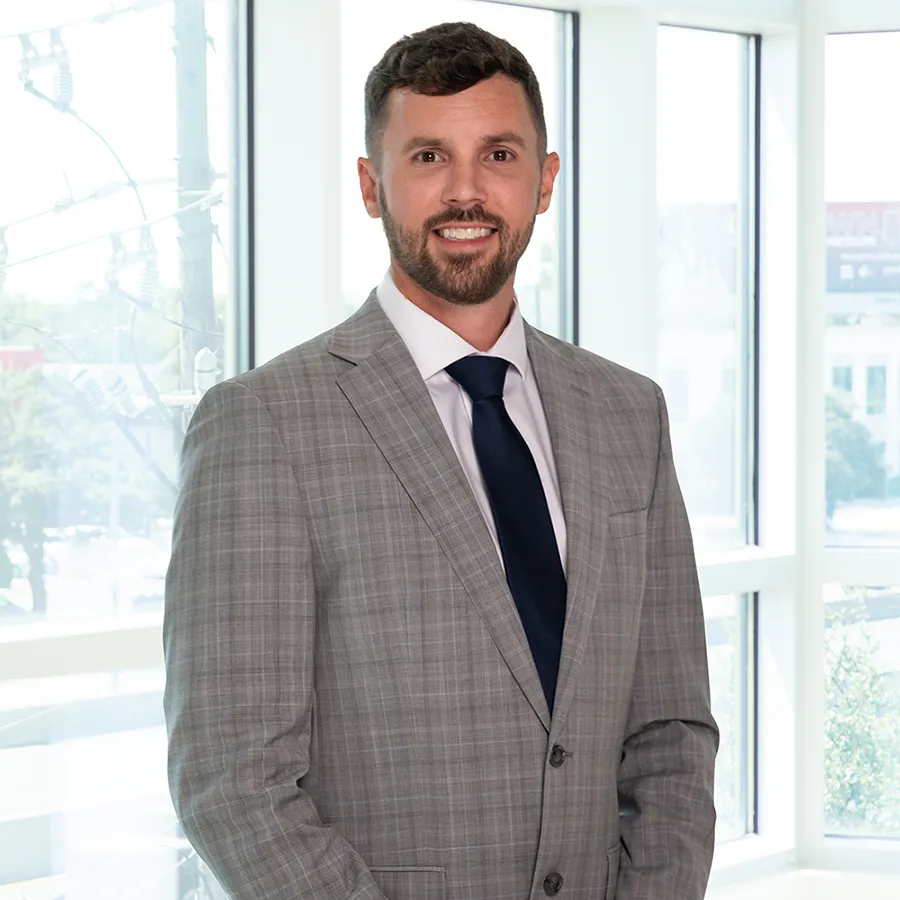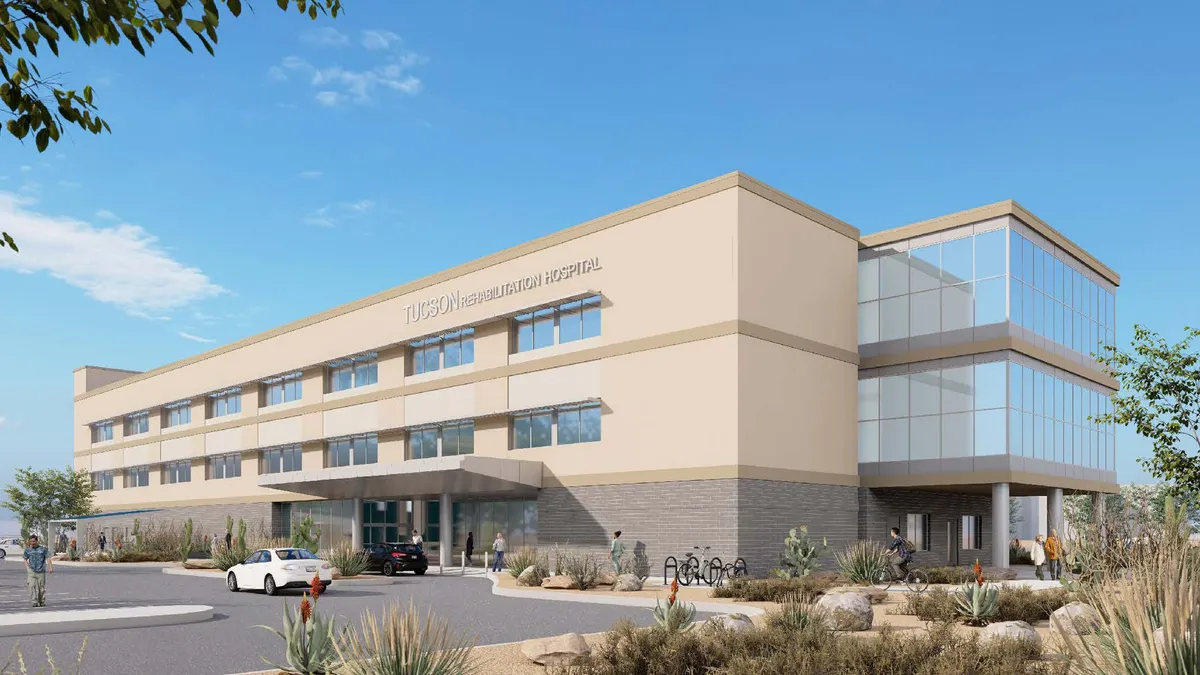A Dallas-based contractor is making strides in the West with its latest endeavor, the Tucson Rehabilitation Hospital in Arizona.
Mycon General Contractors, a national commercial contractor with annual revenues exceeding $525 million, recently broke ground on the project, its first ground-up construction job in the Arizona market. The three-story, 55,098-square-foot hospital will feature 48 modern patient rooms and two therapy gyms with advanced technologies and state-of-the-art equipment.
Ryan Stoll, vice president and partner of Mycon, highlighted the project as a significant step in the company’s Western growth.
Here, Stoll talks with Construction Dive about Mycon’s strategic market expansion, the integration of advanced construction technology and environmentally responsible construction.
Editor’s note: This interview has been edited for clarity and brevity.
CONSTRUCTION DIVE: Can you share more about the strategy expanding into the Arizona market?
RYAN STOLL: Expanding into new markets like Arizona involves understanding local dynamics and regulations and building strong local relationships.
Mycon’s relationship with both existing and new clients has been a driving force behind its expansion across the United States, leading to the establishment of our offices in College Station, Texas, in 2016; Queen Creek, Arizona, in 2022; and Nashville, Tennessee, in 2024. Establishing these offices and teams has been very strategic.
By leveraging our experience and fostering local partnerships, we aim to deliver successful projects and build a strong presence in these new areas.
The Tucson Rehabilitation Hospital project features advanced tech and state-of-the-art equipment. How does Mycon integrate new construction technologies into its projects, and what impact do these technologies have on project efficiency and quality?
Mycon is a data-driven construction firm that uses technology and data to gather information and determine correlations between existing data and previous outcomes, which in turn helps drive major business decisions.
What this means at the project level is taking on projects with advanced tech and state-of-the-art equipment is welcomed, encouraged and seamless for us.
What are some of these tools?
Some innovative technologies we have implemented include robotic process automation. This automates routine tasks to enhance efficiency, particularly in accounting. Machine learning and data analytics allow data to inform decision-making and improve operational outcomes.

Next, we use reality capture, such as state-of-the-art 3D or 360-degree scanning, to document existing conditions and job progress to ensure precision and accountability at every stage. Drones also offer aerial perspectives for better project intelligence, oversight and planning.
Mycon also uses Procore for project management to coordinate the construction process between all involved parties and streamline workflows.
What initiatives has Mycon implemented to ensure environmentally responsible construction, and how do you see this evolving in the future?
We aim to be paperless through the contract, submittal and overall document control processes. There’s a lot of automation involved in our back-of-house processes. We’re also doing a lot of research and development with automation in all major departments of our company in partnership with Texas A&M University.
We use jobsite cameras, drones and similar technology to review project status and make real-time decisions without physically traveling to sites. Looking ahead, Mycon is committed to continuously evolving our sustainability efforts and exploring new methods and technologies to enhance our efficiency further.
Are there any other key trends in the construction industry you are keeping tabs on?
The construction industry is continuously evolving, specifically when it comes to technology. The integration of advanced technologies such as artificial intelligence and automation is enhancing project planning, monitoring and execution, leading to increased efficiency and accuracy.
I can’t express how important it is to be ahead of these technologies in our industry right now. You can be left behind in a matter of a year, and that timeline is shrinking as technology advances daily.













